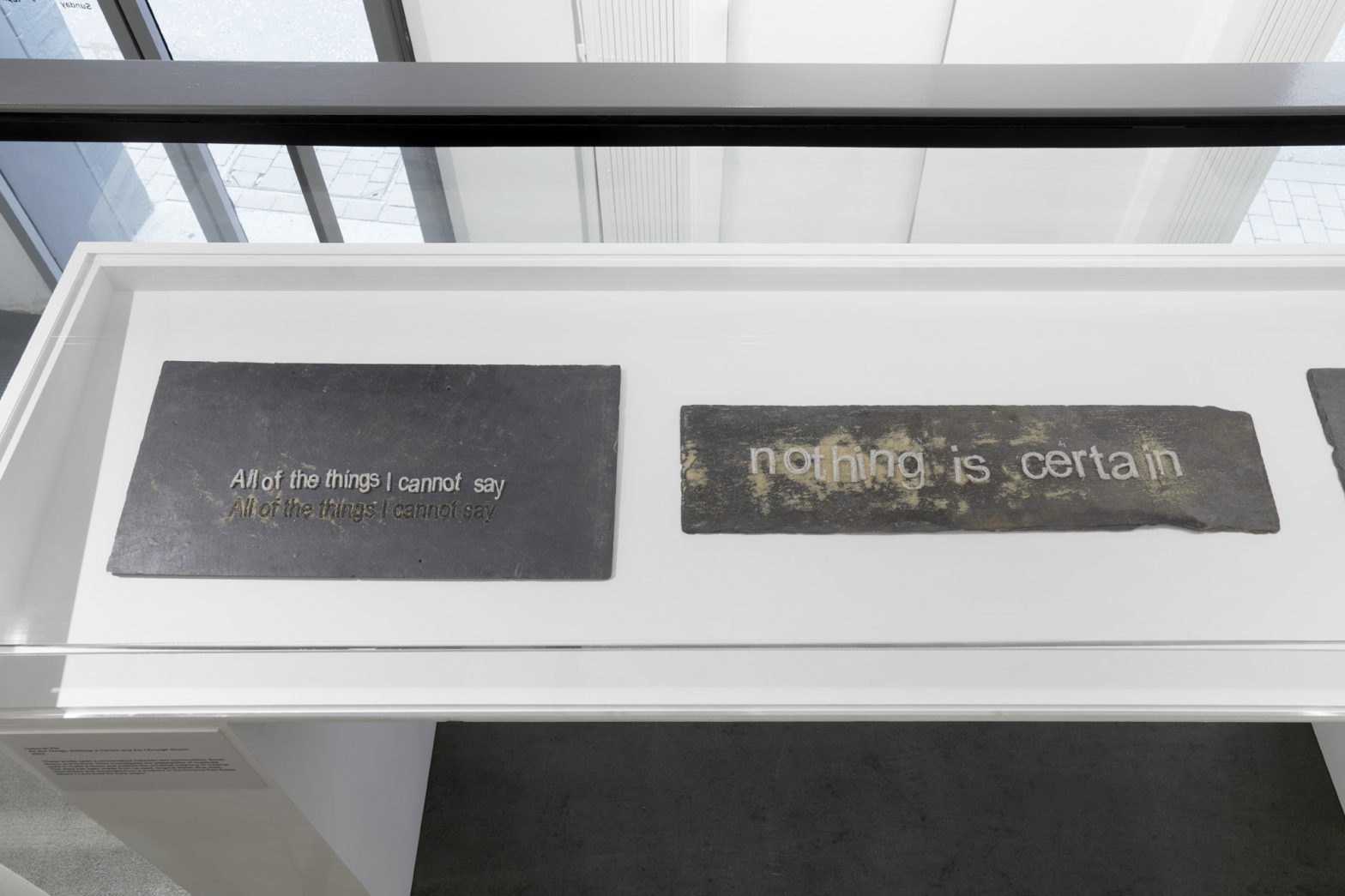What does ‘home’ mean to you? – Hamideh Rimaz, Adapt Transform co-curator
This is Adapt Transform Stories, a thematic series exploring community responses to urban design and creativity. Part of the current Adapt Transform exhibition in partnership with Oxford Brookes University, this week we’re exploring Personal experiences of urban spaces, told through works in the exhibition.
Two new works by Oxford-based artist and arts practitioner, Deborah Pill, seek to prioritise a space for dreamers, to reflect, pause and connect with the environment and with each other. This Room is Mine (2022) and the poetically titled Am I enough?, All the Things, Nothing is Certain and Am I Enough (fossil) (2022) are created out of discarded roofing slates featuring short pieces of text. These poignant works seek to open up a conversation between communities, through the adaptability of materials used to make a ‘home.’ The artist explains how, “Originally, the slates in This Room is Mine were used to form a roof, providing protection; however, after being discarded, they have been transformed into an artwork that opens a conversation about a perceived deprived area of Oxford and an aspirational achievement.”
Paul’s Bench (2022) by Jimi Cullen, shows us what everyone can do, to bring communities together. Using everyday materials, Cullen draws attention to this ubiquitous piece of civic architecture and the way it creates a resting place for conversations among friends and strangers. For Cullen, the bench provides a welcome contrast with urban architecture’s insistence on keeping people ‘moving.’ These subtle landmarks remind us that not everything has to be delivered on a grand scale to be effective in bringing people together, with Cullen suggesting; “Sometimes we don’t need to dream up sci-fi solutions, but to act now using what we already have available in socially-oriented ways.” This work carries a deeply personal meaning for Cullen and is accompanied in Adapt Transform by the story of Paul’s bench, which still sits on Walton Street in the city of Oxford.
Each of the artists and creatives in Adapt Transform inspire different ways of creating thriving social spaces in urban environments. Through their works, Deborah Pill and Jimi Cullen explore how the adaptability of material, form and expression can be used to create meaningful connection and spaces of safety for communities, from the communal public bench to the vital roofs over our heads.
Follow Adapt Transform Stories next week, where we’ll focus on local stories featured in the exhibition, Adapt Transform.
You can visit the exhibition Adapt Transform across two sites – Modern Art Oxford until 18 September and The Glass Tank Gallery at Oxford Brookes University until 11 September.
Want to get involved in Adapt Transform Stories? What does ‘home’ mean to you? Sign up to MAO Studio and leave a comment to join in the conversation.
